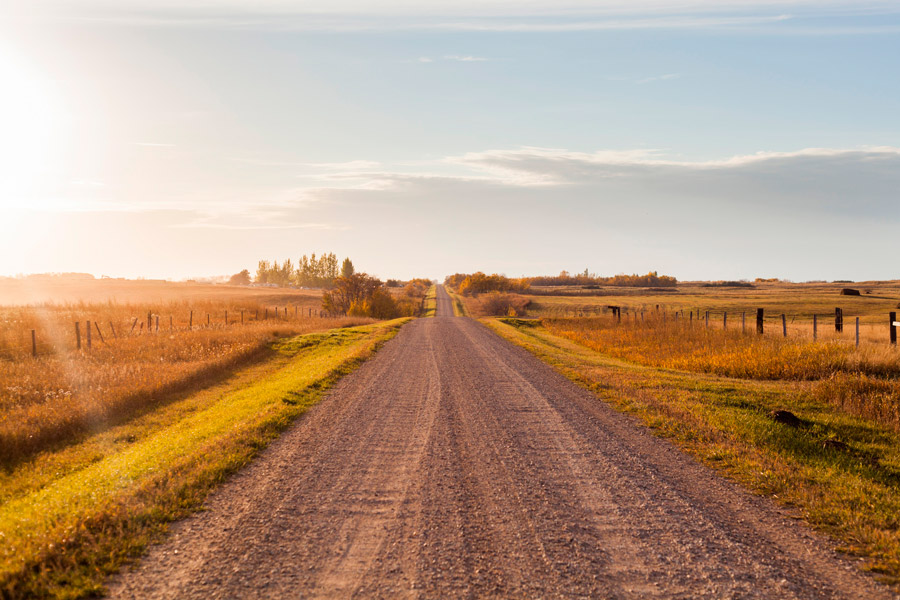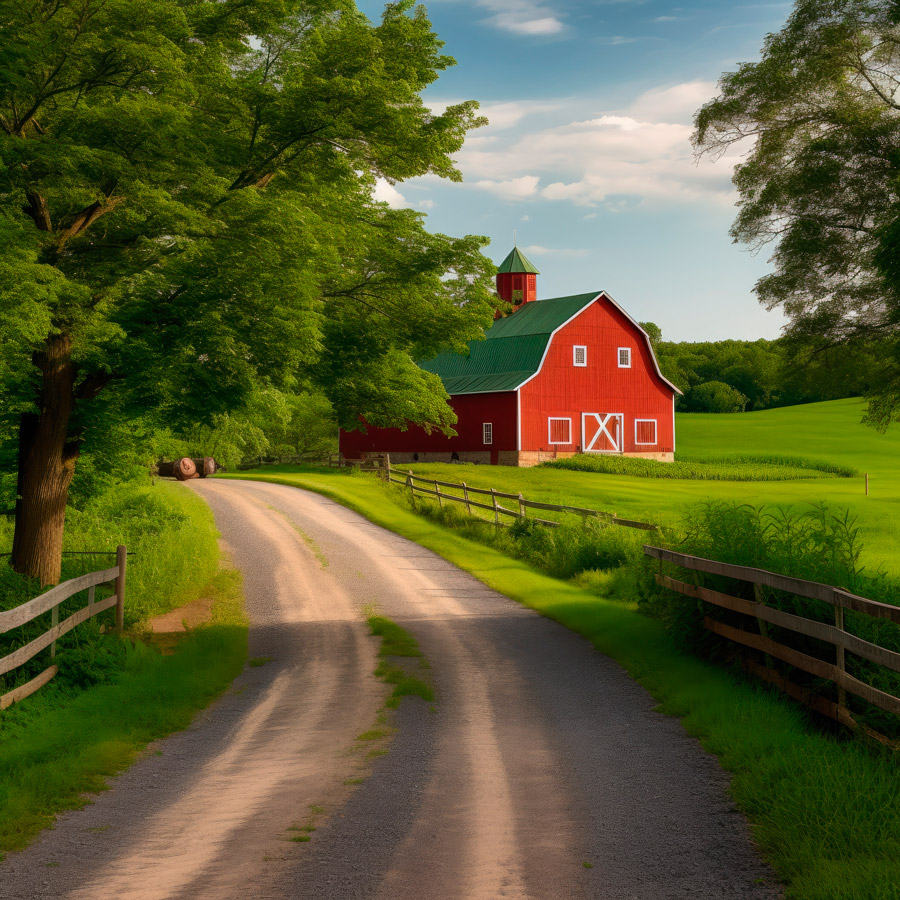Building a driveway or road on your property can be a considerable undertaking but it can provide many benefits for you as a landowner. As “quaint” as dirt roads may be on rural properties, there are many benefits to investing in a professional, well built driveway. Although the cost can be significant, it can provide landowners with exceptional value – increasing accessibility, improving the overall property value, and providing a convenient and comfortable living experience.
Here are a few key considerations to remember throughout the process.
Building a Driveway on Rural Property: Tips for Landowners

Planning and Preparation
Careful planning and prep work are the first steps when building a driveway or road on a large rural property. Landowners need to take the time to decide on the most suitable location for a road when considering their land’s topography. Factors such as the intended use, location of buildings or structures, and natural features such as trees or hills may influence the best site for the driveway or road.
Throughout this stage, consider your property’s terrain and soil conditions and how that will affect road construction. Rural properties often have varying topography, and soil types can differ across the property, so be sure to conduct a thorough site analysis and land survey to help you choose the best spot for development. The details from these tests can help identify any areas that may require additional preparation or grading.
As a final tip: Please remember to get the necessary permits or approvals from local government authorities before starting any construction project.
Materials
The best materials for building a road on a rural property will vary depending on several factors, including the expected traffic volume, weather conditions, and soil type. Gravel, sand, and crushed stone may be appropriate for large rural properties, especially if one prefers a more natural or “rustic” look. However, concrete, cement, or asphalt are often preferred for driveways with higher traffic volumes as these won’t wear away under constant stress. Although not as popular, recycled asphalt is another option that’s often cost-effective. As the name suggests, recycled asphalt reuses existing asphalt rather than using new materials, making it an eco-friendly choice.
Grading and Drainage Installation

Adding proper grading and drainage to your road will significantly increase its longevity, especially in areas prone to frequent rain. To ensure there’s adequate drainage on your new driveway, consider adding culverts or French drains to your design plans. Alternatively, grade your land to naturally direct water away from the driveway or road. Rural landowners may also need to consider ways to mitigate the risks of heavy rainfall or runoff on their driveway.
Maintenance and Repair Work
Factoring regular maintenance into your “road routine” is also essential for ensuring the longevity of your new driveway. For gravel driveways, repair checks may include grading to smooth out any ruts or bumps or adding additional gravel when needed. Consistent maintenance may include filling in cracks or potholes and resealing concrete or asphalt driveways. Whether you do the work or hire outside help like a contractor, be sure to schedule this work throughout the year to preserve your roadway.
Estimate Your Cost
Since every property owner has different needs, it’s impossible to give an “average cost” for your driveway project. However, every rural landowner needs to sit down and calculate the expected amount needed for materials, extra preparation and grading work, and labor costs. Ask for quotes from several contractors in your area to determine the average value for this project and how to budget your money.
Build the Dream Driveway for Your Property

Building the best driveway on a large rural property requires a lot of careful planning and frequent maintenance, but it may be worth it for the convenience and value it adds to your property. Be sure to consider essential factors such as materials, grading and drainage, repair equipment, and expected costs when determining the best action to take when building a road. By taking plenty of time to plan and prepare before paving your road, you can create a durable and long-lasting driveway that will provide years of use and enjoyment.
